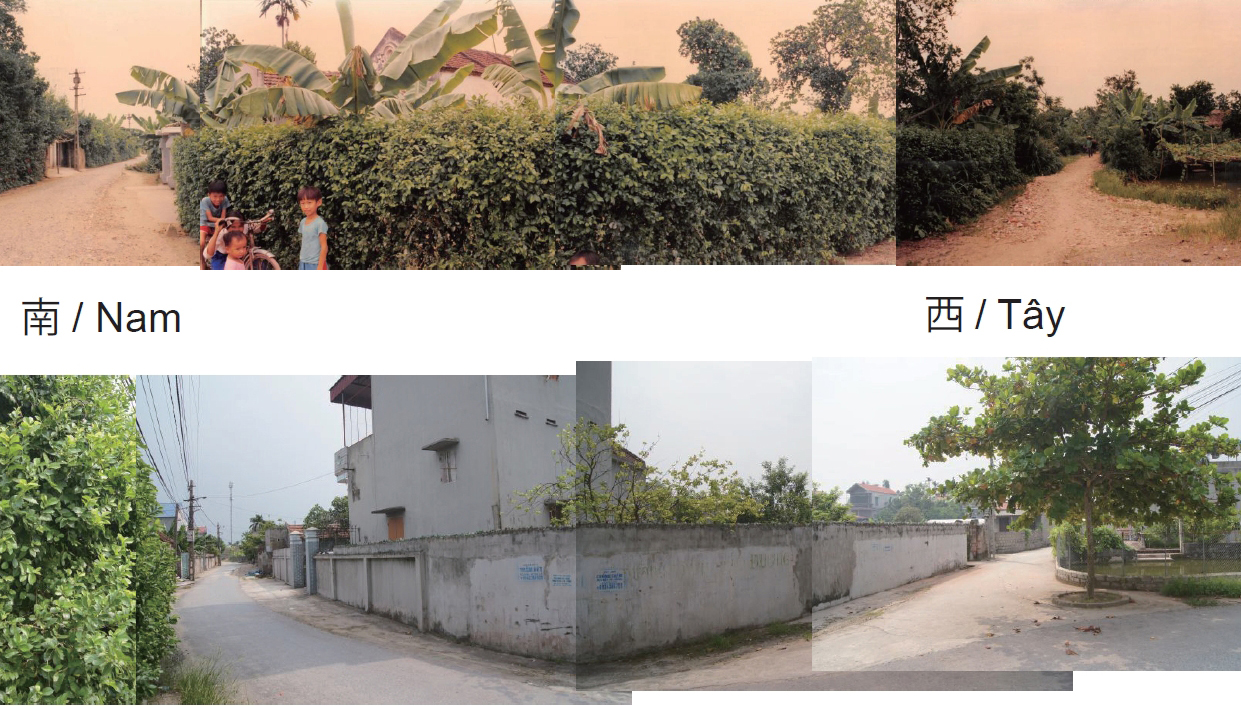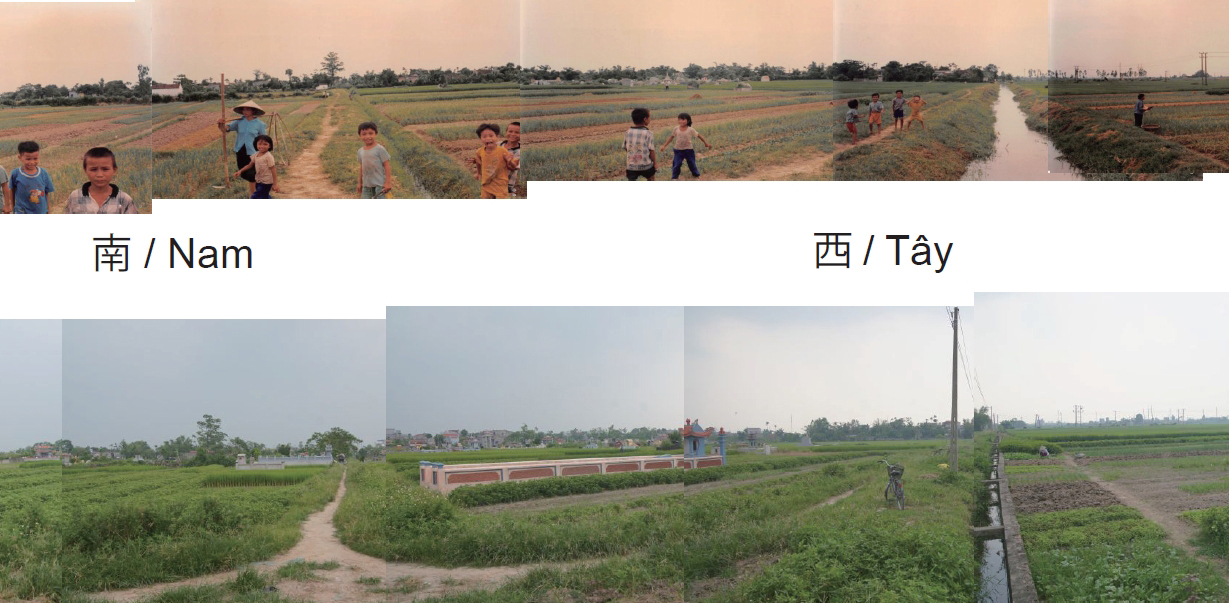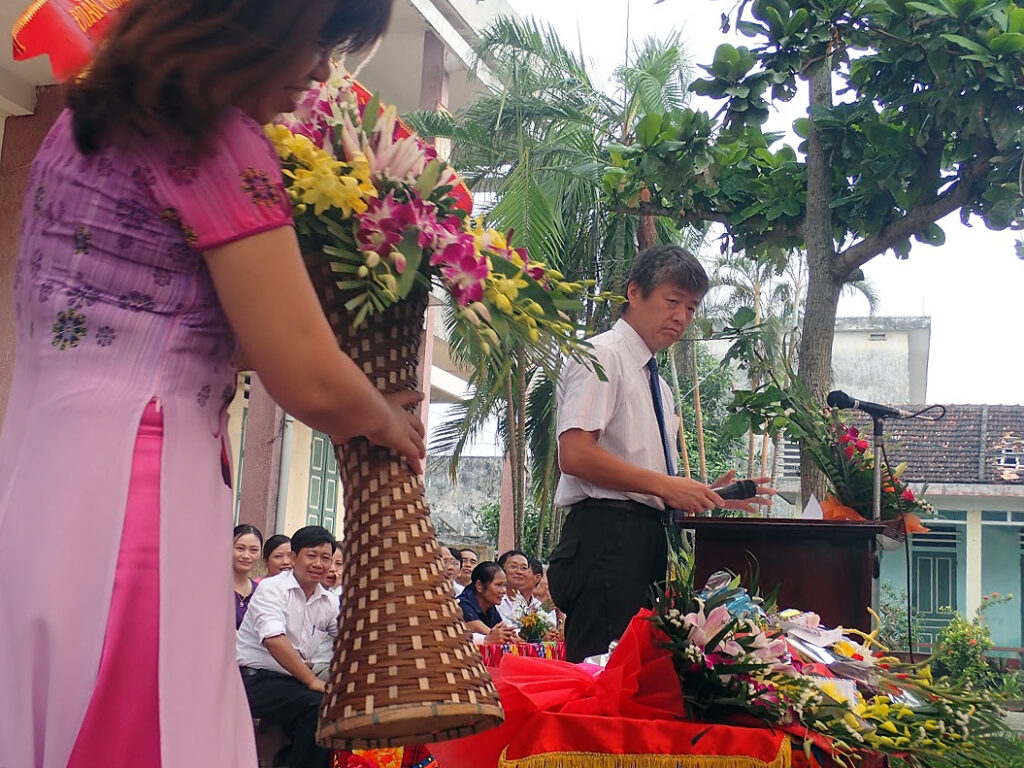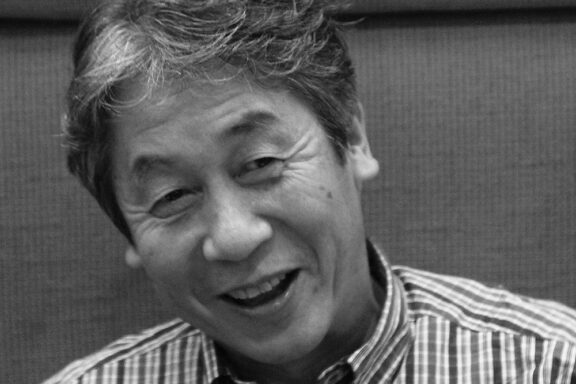Masayuki Yanagisawa (Environmental History in Southeast Asia, Vietnamese Studies)
What is rural village study?
In the 1990s, when I would tell people that I was doing a rural village study in Vietnam, they would respond with, “Oh, I see, I understand,” but today they reply, “Oh, really, why?” This is because there has been a significant change in both the subject of and the people conducting such research.
In the 1990s, studying rural villages was directly linked to inquiry of Vietnam’s major economic activities and basic social structure; it was also crucial for discerning and interpreting Vietnamese culture. This was because rural people accounted for more than half of the country’s population, and agriculture was a critical industry. In 1986, Vietnam began to introduce a market economy system, establish relations with foreign countries, and play an important role in the international community. Consequently, in the 1990s, there was a growing interest in improving understanding of the emerging nation of Vietnam. Rural village study was recognized as necessary amid these domestic and international contexts.
However, as Vietnam has undergone rapid economic development, the heart of the economy has shifted to the industrial and service sectors. The population has increased, and people have moved to cities. In rural villages, many young people have taken up non-agricultural occupations, leading to a shortage of agricultural labor. As the socio-economic importance of rural villages and agriculture has declined relatively, the significance of rural village studies is not as clear as it once was.
At the same time, there have been significant changes in the topics researched, the people conducting research, where research is published, and how research results are evaluated. In response to changes in Vietnamese rural villages, the topics to be studied have seemingly exploded. The number of Vietnamese researchers conducting studies of Vietnam has also flourished. Finally, while the number and types of academic journals have increased, results-oriented approaches to academic research continue to rise. I turn now to the diversification of research topics.

The same location in a rural village was photographed in 1996/97 (top) and 2016/17 (bottom). In the second photo, the road has been paved, the hedges and banana trees have been replaced with fences, and the number of electric transmission lines has increased.

The same farmland in a rural village was photographed in 1996/97 (top) and 2016/17 (bottom). The once-wide irrigation channels have been concreted over and narrowed, creating more area for cultivation. Transmission lines now also run through the fields.
Researching specific issues, asking big questions
Reflecting the diversity of involvement, research on contemporary Vietnam has expanded to include a wide variety of topics, including politics and economics, social culture, and the natural environment. Studies range from those on specific issues, which apply well-established approaches of certain academic disciplines, to studies on overarching questions, which require an integrated approach across disciplines. Studies with overarching themes address “bigger” research questions, such as local and national governance, Vietnamese faith and religion in East Asia, relationships with nature, development and society, and so on. Each researcher approaches their study with such fundamental, or “big” questions, as well as the resulting problem-solving questions that are specific to each era.
Since the 1990s, the research topics of individual researchers have also naturally changed. For example, in the 1990s, I began studying intensive agricultural systems that achieve high levels of production and the rural organizations that make those systems possible. However, amid the changing status of agriculture, I have shifted my research to the diversification of livelihoods, the transformation of village life, land fragmentation and consolidation, and the changing roles of the village community. Yet while specific research topics may have shifted over time, conducting rural village studies remains pertinent. For me, the fundamental questions when researching in Vietnam are “What is a village community?” and “How has the accumulation of human-nature interactions created the existing environment?” With a particular interest in the former, I have been conducting village studies in the Red River Delta since 1994.
Long-term village studies in the Red River Delta
I began conducting village studies as part of a team under the leadership of Professor Sakurai Yumio, who sadly passed away in 2012. I have continued leading the project since then. Our main objective is to better understand “rural community” in Vietnam. To do this, we needed to clarify the socio-economic changes happening at the village level. We therefore began by conducting comprehensive socioeconomic surveys (CSES) targeting all villagers in one hamlet of about 200 households. The first survey was conducted in 1995. Since then, surveys have been conducted every five years.
The purpose of the initial CSES was to obtain basic information about the village. The list of questions covered a wide range of topics, including the education and employment history of all household members, livelihood activities, and consumption behavior. The subsequent surveys aimed to elucidate the changes in the village during the previous five years. To enable comparisons across time, the basic questions were not changed, but the list of questions was modified to suit the circumstances of each era. For example, until the 2000s, we were able to obtain detailed responses on rice, vegetable, and fruit cultivation, as well as livestock farming, including the amounts and prices of chemical fertilizers, pesticides, and feed, cultivation and farming methods, and income and expenses. In the most recent 2024 survey, however, the answers were more ambiguous. This is because agricultural production in the village is no longer carried out with the same attention as in the past.
The CSES surveys have been conducted according to local conditions; all questionnaires are written in Vietnamese and interviews are conducted in Vietnamese. The questionnaires are developed through collaborative discussions between local villagers and researchers who have been conducting research in the village. Thus, the CSES is not merely a questionnaire to obtain general information about the village. Instead, making the most of the long-term ongoing survey findings, it is an intensive interview process, the results of which closely reflect the condition of each household.
I view the primary purpose of the CSES as helping us discern what is changing from what sustains amid the rapid transformations occurring in rural Vietnam. By analyzing the findings from the CSES in an interdisciplinary manner and comparing them with other villages and a broader area, I hope to obtain an answer to the big question of “what makes rural community in Vietnam?”
Finding the Balance
As mentioned earlier, results-oriented approaches to academic research are on the rise. I fear that over-emphasizing the number of “achievements” risks sacrificing discussion of bigger questions in the race to demonstrate short-term, concise research results.
This is not to say that the results-oriented approach is the cause of our inability to ask big questions. To begin with, they are inherently complex and require addressing multiple specific research questions to arrive at answers. Big questions serve as a guiding principle for research; without asking them, the purpose of research becomes unclear, especially in the pursuit of short-term results within specific fields. Therefore, it is precisely because we live in an era of results-oriented approaches that asking such “big questions” is more necessary than ever.
In the case of our project, we are constantly seeking to strike a balance between asking big questions and researching specific issues. Through discussions with research members, debates at academic meetings, and writing essays like this, we aim to find the right balance between the two.

References for further reading
Gourou, P. (1936) Les paysans du Delta tonkinois : étude de géographie humaine. Les Éditions d’art et d’histoire.
Sakurai, Y. 桜井由躬雄 (1987) Betonamu sonraku no keisei: Sonraku kyoyuden=kondiensei no shiteki tenkai ベトナム村落の形成:村落共有田=コンディエン制の史的展開. Sobunsha (in Japanese).
Yanagisawa, M. (2000) “Fund-raising Activities of a Cooperative in the Red River Delta: A Case Study of the Coc Thanh Cooperative in Nam Dinh Province, Vietnam.” Southeast Asian Studies 38: 123–141.
Yanagisawa, M., Niimi, T., Fujikura, T., Shibuya, Y., and Yuko O. (2025) Thông Tin Bách Cốc so 23. GCR Working Paper Series No. 5. Center for Southeast Asian Studies, Kyoto University (in Japanese and Vietnamese).
This article is also available in Japanese. >>
「ベトナムの農村を研究する:大きな問いと特定の課題」
(柳澤雅之)





